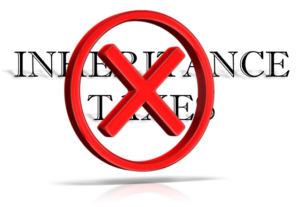When it comes to inheritance, the topic is not just about passing down assets from one generation to the next. It also has significant implications for society’s economic health and overall productivity.
Inheritance taxes, for example, have been a controversial subject that continues to stir debates among politicians and policymakers. In Australia, there have been talks about potentially diverting all assets to the state upon an individual’s passing to address the perceived inequality in inheritance. But how does this proposed change impact the economy and society as a whole?
Historically, inheritance taxes have been likened to Marxist principles due to their potentially destructive economic consequences. Imagine if a company worth $100 million had to pay 40% in taxes upon the owner’s passing. This tax burden could force the heirs to sell off assets, fire employees, and disrupt the company’s operations. This phenomenon has been particularly evident in farming, where heirs had to sell farmland to cover the taxes, leading to a consolidation of land ownership among large farming companies like Bill Gates.
Looking back at ancient societies, the issue of inheritance was a fundamental concern. In the Middle Ages, the first son would inherit everything, while the second son would often be sent to the church. This primogeniture system ensured the preservation of estates and prevented a widespread division of assets that could harm productivity.
Even Aristotle criticized the practice of rewarding fathers based on the number of children in Sparta, as it led to economic burdens and poverty. The lesson from history is clear – dividing assets equally among heirs or imposing high inheritance taxes can erode the productive capacity of organizations and hinder economic growth.
As we move forward, it is crucial to consider the implications of inheritance laws and taxes on society’s well-being. Instead of following Marxist principles, we should look to the wisdom of our founding fathers who understood the importance of protecting property rights and preserving productivity. Thomas Paine’s words still ring true today: “Government, even in its best state, is but a necessary evil; in its worse state, an intolerable one.” Let’s learn from history and make informed decisions that prioritize economic progress and prosperity for all.
At Extreme Investor Network, we delve deep into economic topics like inheritance and taxation to provide valuable insights that empower our readers to make informed investment decisions. Stay tuned for more thought-provoking content that challenges conventional wisdom and sheds light on the complexities of the economic world.


